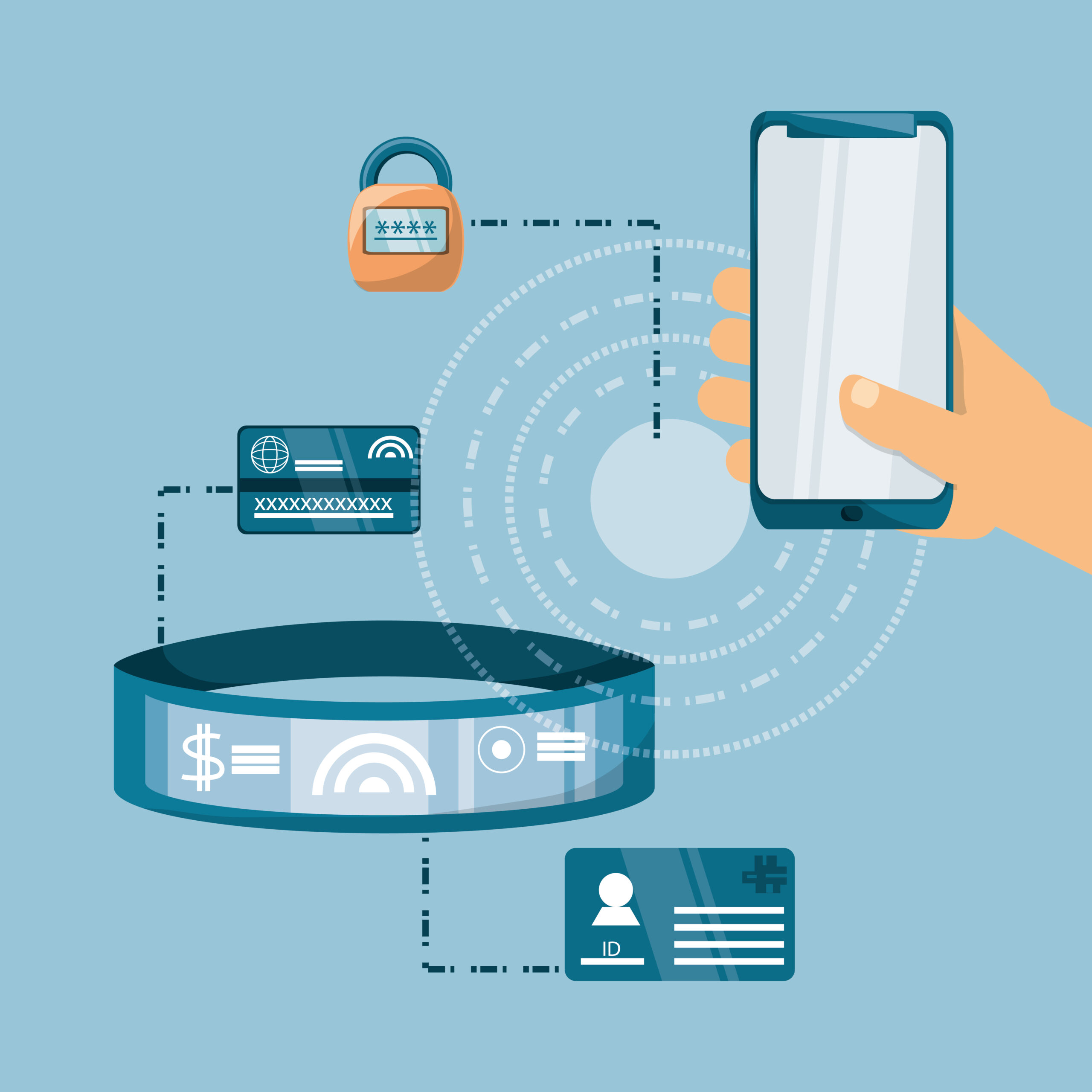NFC (Near Field Communication) tags are transforming various industries through their versatility and diverse applications. These small, embedded chips allow devices to communicate wirelessly when in close proximity, unlocking a range of possibilities that enhance operational efficiency, improve customer experiences, and drive innovation. Here’s a closer look at how NFC tags are revolutionizing different sectors:
Inventory Management
In the realm of inventory management, NFC tags are making significant strides in streamlining processes and improving efficiency. By attaching NFC tags to inventory items, businesses can track and monitor stock levels in real time. NFC-enabled mobile devices or scanners can easily read these tags, allowing employees to quickly identify items, update inventory records, and manage stock movements with precision. This not only reduces human error but also saves time, making inventory management more efficient and accurate. As a result, businesses can optimize their stock levels, reduce excess inventory, and ultimately cut costs.
Asset Tracking
Asset tracking is another area where NFC tags prove invaluable, particularly in logistics, healthcare, and manufacturing. Companies can equip assets such as equipment, tools, and vehicles with NFC tags to facilitate easy identification and monitoring. This capability enables businesses to track the location, status, and maintenance history of their assets. By optimizing asset utilization and preventing loss or theft, organizations can improve operational efficiency and reduce downtime. In sectors like healthcare, precise asset tracking is crucial for managing critical medical equipment, ensuring that resources are readily available when needed.
Interactive Experiences
NFC technology is transforming customer interactions and engagement across retail, marketing, and entertainment industries. By embedding NFC tags in products, packaging, or promotional materials, brands can create interactive experiences that captivate consumers. Customers simply tap their NFC-enabled smartphones on these tags to access product information, special offers, loyalty rewards, or immersive multimedia content. This not only enhances the shopping experience but also drives brand loyalty, as customers are more likely to engage with brands that offer interactive and personalized experiences. Furthermore, brands can gather valuable data on customer behavior and preferences through these interactions, allowing for targeted marketing strategies.
Access Control and Security
NFC tags are increasingly used in access control and security applications within buildings, campuses, and events. NFC-enabled access cards or key fobs allow authorized personnel to gain entry to secure areas with a simple tap. This seamless access reduces wait times and enhances the overall security of facilities. Similarly, NFC-enabled identification badges or wristbands can be employed at events to verify attendee credentials or grant access to restricted areas. This enhances security measures, prevents unauthorized access, and ensures a smoother experience for event attendees.
Payment and Transactions
The way payments are made is being revolutionized by NFC technology, which offers unparalleled convenience, speed, and security. NFC-enabled smartphones and payment cards allow users to make contactless payments at retail stores, restaurants, public transportation systems, and vending machines. This seamless payment experience eliminates the need for physical cash or cards, significantly reducing transaction times and enhancing customer satisfaction. The rise of mobile wallets and contactless payment systems showcases the growing preference for quick and secure transactions, particularly in today’s fast-paced world.
Healthcare and Medical Applications
In the healthcare industry, NFC tags are increasingly being utilized for patient identification, medication management, and medical device tracking. NFC-enabled wristbands or badges can store essential patient information and medical history, allowing healthcare professionals to access vital data quickly and accurately. This can enhance patient safety and streamline workflows. Additionally, NFC tags on medication packaging enable patients to verify authenticity, access dosage instructions, and receive reminders for medication adherence. By improving patient engagement and adherence, NFC technology contributes to better health outcomes.
Smart Packaging and Supply Chain Management
NFC tags are being integrated into product packaging to enable smart packaging solutions and enhance supply chain visibility. By embedding NFC tags in packaging materials, manufacturers can track product movements, monitor storage conditions, and ensure product authenticity throughout the supply chain. This transparency and traceability help improve product quality, reduce counterfeiting, and enhance consumer trust. For consumers, scanning NFC tags can provide detailed product information, including sourcing and sustainability credentials, fostering informed purchasing decisions.
Conclusion
Overall, NFC tags present a myriad of possibilities across various industries, enabling businesses to improve operational efficiency, enhance customer experiences, and unlock new opportunities for innovation and growth. As NFC technology continues to evolve, its potential to transform industries and shape the future of connectivity remains limitless. The seamless integration of NFC tags into everyday processes is paving the way for smarter, more efficient, and interactive solutions that cater to the evolving needs of businesses and consumers alike.
